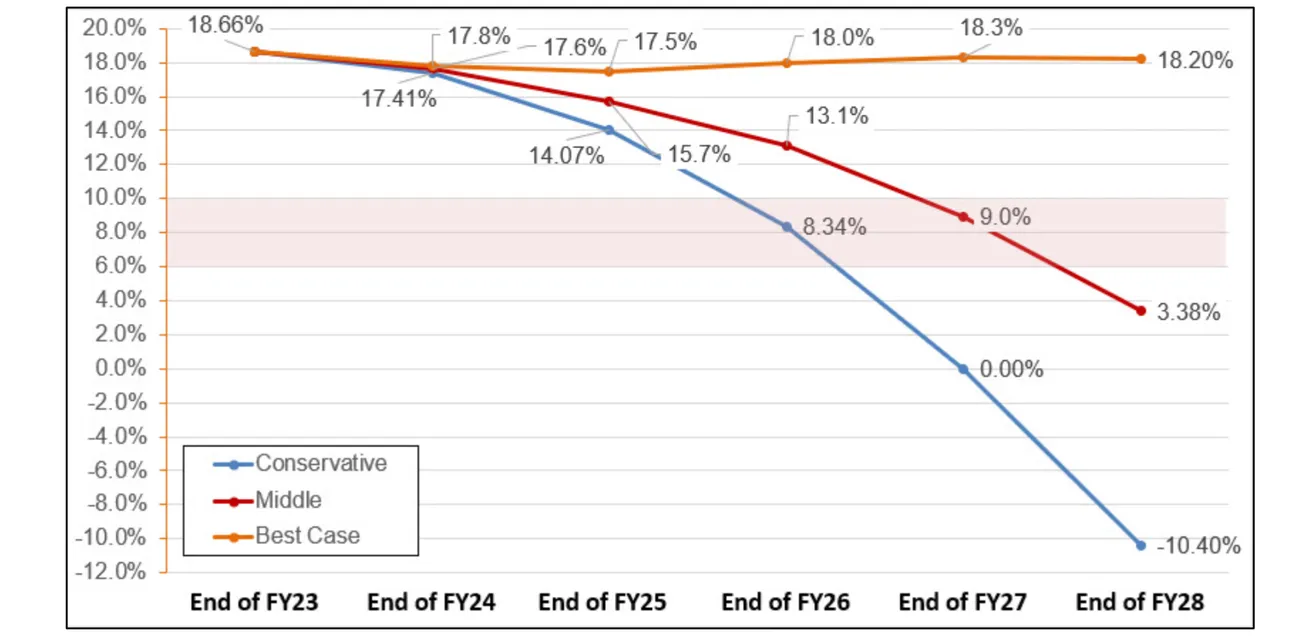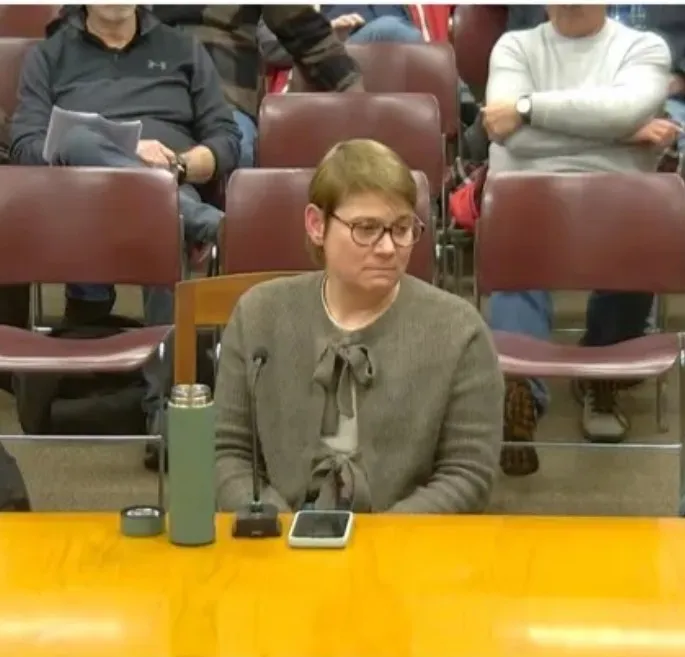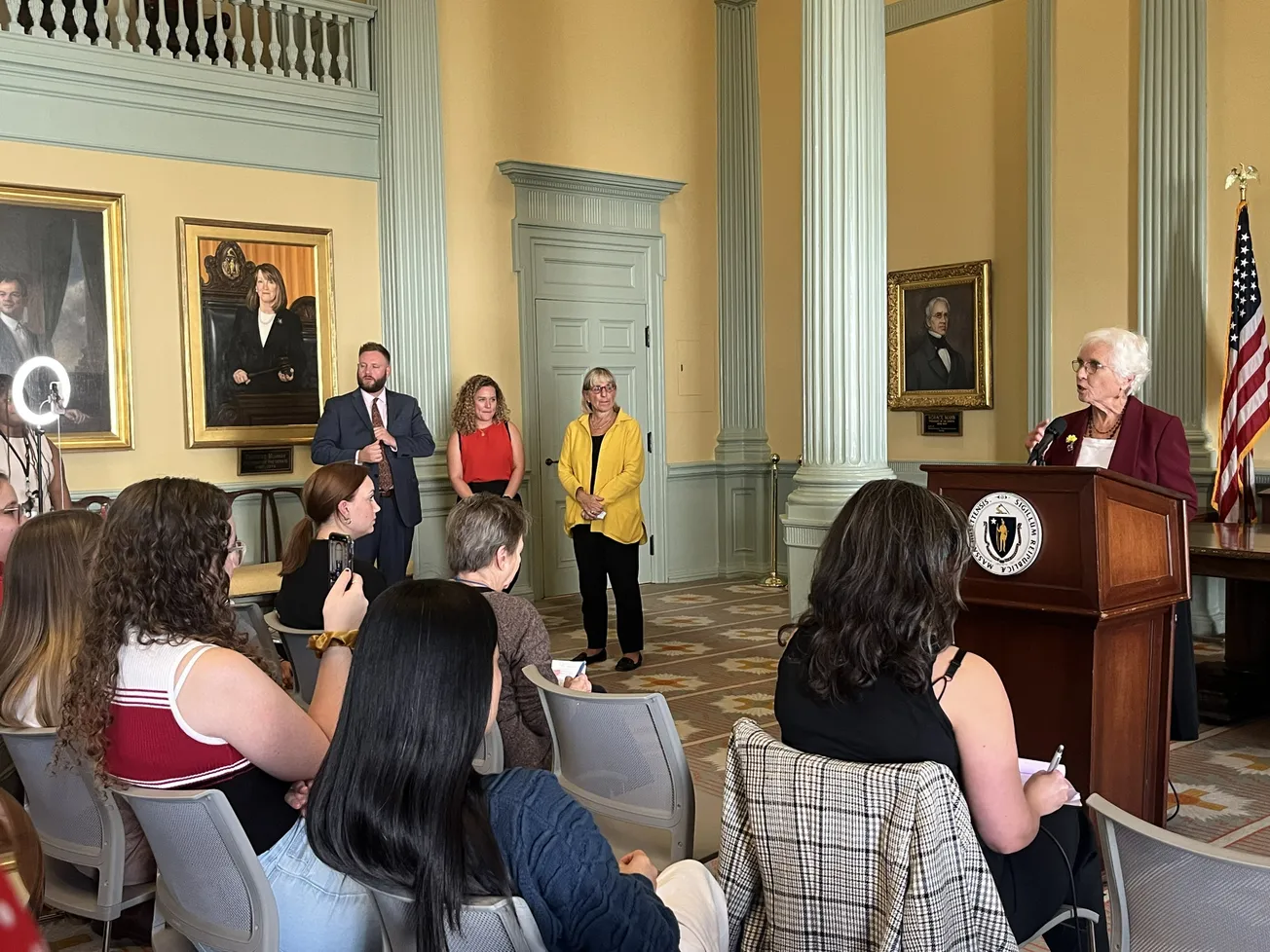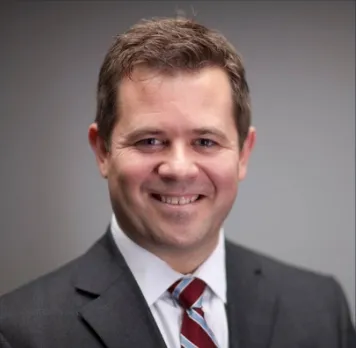Table of Contents
Just in case there are any concerns as residents prepare to head into the Spring Town Meeting Monday, the town does have a balanced budget.
“Our [Fiscal Year 2025] budget is structurally balanced, just as My Linh Trulong balanced last year’s budget,” said Finance Committee Chair John Miller, referring to 2023’s Finance Committee Chair.
Miller and the Finance Committee held a public hearing on the Fiscal Year 2025 budget April 25 that included a broad overview of town finances, including the School Department and the impact debt exclusions have on taxpayers.
The chart Miller showed to explain the tax impact laid out what the town owes and is anticipated to owe up to 2030. It included debt exclusions, debt that will go away once it’s paid and two permanent overrides voters approved in 2002, the assumed property tax increase that will go into effect if residents adopt the Community Preservation Act in November and possible additions to the BSF/CSF (Building Stabilization Fund/Capital Stabilization Fund).
Miller said a very preliminary look shows the average tax bill would increase by $1,300 in Fiscal Year 2026 to pay for all those initiatives.
“Our bottom line is that we think that Town Meeting should be carefully thinking about the timing and the effect on the property tax of competing needs for these funds,” he said. “And the three big issues we see are how to reset the purposes and the funding levels for the two stabilization funds, which support half a billion dollars in existing assets, the possible replacement of Muraco and [Fiscal Year 2030] and the adoption of the 1.5% surcharge for the CPA.”
Miller’s other bottom line was slightly better news.
“The bottom line really is that provided that Spring Town Meeting does not use significant operating reserves, sometimes called free cash to fund FY25 operating expenses, the Finance Committee does not project the need for an operating override until the end of FY26.”
The good news is that should that happen, Miller said the town has once again maintained its Triple A bond rating with Moody’s, a leading risk assessment company. Bond ratings are like personal credit scores, a community with a high rating is seen as less of a risk, which generally translates into lower interest rates on debt.
More from FinCom
During the evening, there were a few other points of interest, including the following:
• Miller said he believes there is $650,000 or more to be found on the town’s revenue side.
• The increase in the education budget was limited to $2.562 million
• The proposed budget preserves funding for teachers in full. It also provides a 4.12% increase for all other education expenses.
• The addition of a full-time employee for the Planning Board and a full-time Deputy Fire Chief had been deferred.
On the education side
Sixty-five percent of the town’s budget is spent on schools, said Finance Committee Vice Chair Jeffrey Calabrese. And the simple view of the budget shows enrollment is down and expenses are up.
Calabrese said they analyzed the operating budget versus enrollment and came up with a couple of insights, some of the same line items go unspent year over year and “the budget is highly variable.”
“So, 12.5% of the entire budget goes to a different place than we intended,” he said.
By way of showing “how the money is very liquid,” he pointed to the FY23 budget where $450,000 over budget was spent on critical infrastructure repairs. But because there was unspent money in other line items, the budget could absorb the cost, Calabrese said.
“It’s just a matter of rank ordering things and prioritizing things,” he said.
Calabrese said they also looked at goal and performance, but the FY25 budget book is silent on goals. He called the lack of deliverables or system objectives a material gap.
Looking at past years, Calabrese said there appeared to be some goals but they appeared to be more mission statements than specific, measurable, time-based goals.
“But the real interesting point is … where we went into our literary consulting,” he said.
Calabrese said they received a report that came with a number of recommendations, but he’s not sure those recommendations were ever fully executed. And while it seems like another literacy revamp is needed, he thinks some strategy should be put in place or it wouldn’t be money well spent.
He said they were happy to fully fund the teacher request at $2.56 million, but if additional money is needed for consulting or strategy, the schools need to follow the RFP process, request for proposals.
Select Board Chair Michelle Prior asked if other town departments set goals and produced measurable achievements.
Calabrese said on the municipal side there seem to be initiatives with intended outcomes, ideas on how each department plans to allocate its money. He said ideally every department should have clear objectives that can be measured.
“And I think we’re making progress, but for a budget of $70 million to really not say anything on goals or objectives is something,” he said.
Caren Connelly asked if the Finance Committee worked with the School Department, asked about unspent funds and the lack of transparency.
“This wasn’t done in a silo,” Calabrese assured her.
Miller also said they’ve had the full cooperation of the School Department and have a good relationship with the chair of the School Committee.
“This has been a no drama exercise,” he said. “We’ve tried to just exchange the data and have good discussions.”
When Connelly asked what their response was to the funding reallocations, Calabrese said changing priorities. Again, he said, he thought the way to address the gap was to have key goals and objectives.
Calabrese also compared the way Winchester handles its education budget with other communities and suggested they take a look at how Wellesley and Concord put together its budgets.
Article 27
Miller also touched briefly on Article 27 on the Town Meeting warrant, which is to see if the town will direct the Finance Committee, in consultation and cooperation with the Select Board, to set funding levels for the Building Stabilization Fund and the Capital Stabilization Fund.
Since that article came about in March, however, the Select Board has agreed to take the lead and Miller said his committee is happy to lend their data and their support and is looking forward to hearing what the Select Board have in mind.
Questions
One resident asked if the town could plan an override based on inflation predictions. The concern was that if the town never dips into its reserves, does that mean it will just go from override to override?
Calabrese said he doesn’t buy into the idea that the town will need an override every given number of years.
“I think you can manage through that,” he said. “Like we’ve managed as a committee to present the structurally balanced budget that we don’t think introduces any risk to the town.”
Miller fielding more discussion on how budget challenges are met said they were confident the town had a great staff.
“We don’t have a lot of problems that other cities and towns have. We really are blessed,” he said. “I tried to say that in the beginning of the report, we are lucky, we are blessed with a wonderful place. And you know, this is not the gloom and doom committee, but we do have to sharpen the pencils, you know.”
Winchester News is a non-profit organization supported by our community. If you appreciate having local Winchester news, please donate to support our work, and subscribe to our weekly newsletter.







